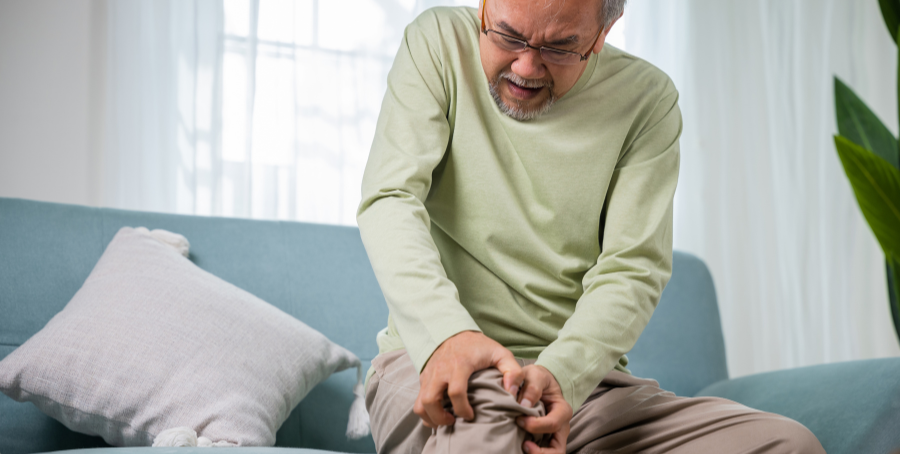
Imagine having to walk, climb stairs, or even lift your legs off the ground with excruciating pain in your knees constantly. Unfortunately, for many people diagnosed with knee arthritis, they have to deal with that every single day.
While there are medications and surgical methods to manage the pain, not everyone is suitable for these form of intervention. Luckily, there are other natural methods that achieve similar effects when performed in the early stages of knee arthritis. From herbs to physical therapy, you may not need invasive procedures or spend thousands of dollars to improve your quality of life. If you are suffering from knee arthritis and is looking for natural methods to strengthen and recover your body, read on to find out more about the natural treatments available to better alleviate knee pain and prevent the condition from aggravating!
What is TCM’s Perspective on Knee Arthritis?
In TCM, knee arthritis is a condition caused by Qi deficiency in the kidney, spleen, and liver. This results in the blockage or stagnation of Qi and blood flow to the knee joint, making it more susceptible to injury. There may also be an accumulation of toxins and waste products in the joints, leading to inflammation. Overtime, knee arthritis will present itself as a painful sensation in the knee, often accompanied by swelling and stiffness.
But why do our bodies lack Qi in the first place? There are both external and internal reasons. External factors include traumatic injuries and exposure to wind, cold, dampness, and heat, which creates Qi or blood blockages. This often leads to swelling and heaviness on the limbs. On the other hand, internal factors involve emotional stress that disrupts the flow of Qi and blood, weakening the immune system which makes the joints more vulnerable to inflammation. Poor lifestyle habits like bad posture and poor diet can force the accumulation of phlegm, obstructing the flow of Qi.
Based on the causes above, knee arthritis under TCM can be classified into 5 main factors:
- Wind: migratory soreness in the joints.
- Cold: sharp pain in a specific area of the body, which usually worsens in colder environments.
- Dampness: sore and aching joints with a feeling of heaviness in the limbs.
- Heat: Searing pain and swelling that aggravates under hot environment.
- Liver and kidney deficiency: lingering pain, and heaviness in the limbs.
Thankfully, there are many natural treatments that you can consider to manage your knee pain.
What are some Home Remedies for Knee Arthritis?
1. Hot and cold therapy
Heat relieves joint stiffness by increasing blood flow to your muscles, while cold reduces joint pain and inflammation by constricting the blood vessels, thereby numbing the area. For acute pain, you can apply ice packs on your knee for about 10 minutes for temporary pain relief. However, if your knee pain is chronic, try using a heat pack/towel or take a hot bath for 15 to 20 minutes to ease any stiffness in your joints.
2. Herbs
Herbs with anti-inflammatory and pain-relieving properties would be the most beneficial for you. Some of these herbs include:
- Ginger: Besides deswelling your knee, research has also suggested that ginger is linked to improved joint mobility, which reduces the likelihood of long-term disability from knee arthritis.
- Turmeric: Contains curcumin, a yellow pigment with anti-inflammatory effects.
- Boswellia: Contains boswellic acid, which has anti-inflammatory effects helpful for inflammatory diseases including knee arthritis.
- Willow bark: Contains a compound called salicin, which is a pain-relieving chemical similar to aspirin. It would be a nice alternative to pain medications.
There are a variety of ways to incorporate these herbs into your diet. For instance, you can simply add a small teaspoon of herb into a cup of boiling water to make a herbal tea, or use them as seasoning for dishes of your liking. Alternatively, you can get these herbs in capsules or tincture form.
It’s important to note that effective of the herbs varies from person to person. You should talk with a physician to better understand which herb is best suited for your health conditions.
3. Acupressure
Acupressure involves applying pressure on acupoints, which are specific locations on the body along the meridians that allows Qi flow throughout the body. This can remove any Qi blockages, re-establishing the harmonious balance in the body. This is very helpful for pain relief as well as arthritis recovery.
For easing your pain, you can consider placing pressure on these acupoints in a circular motion for a few minutes everyday:
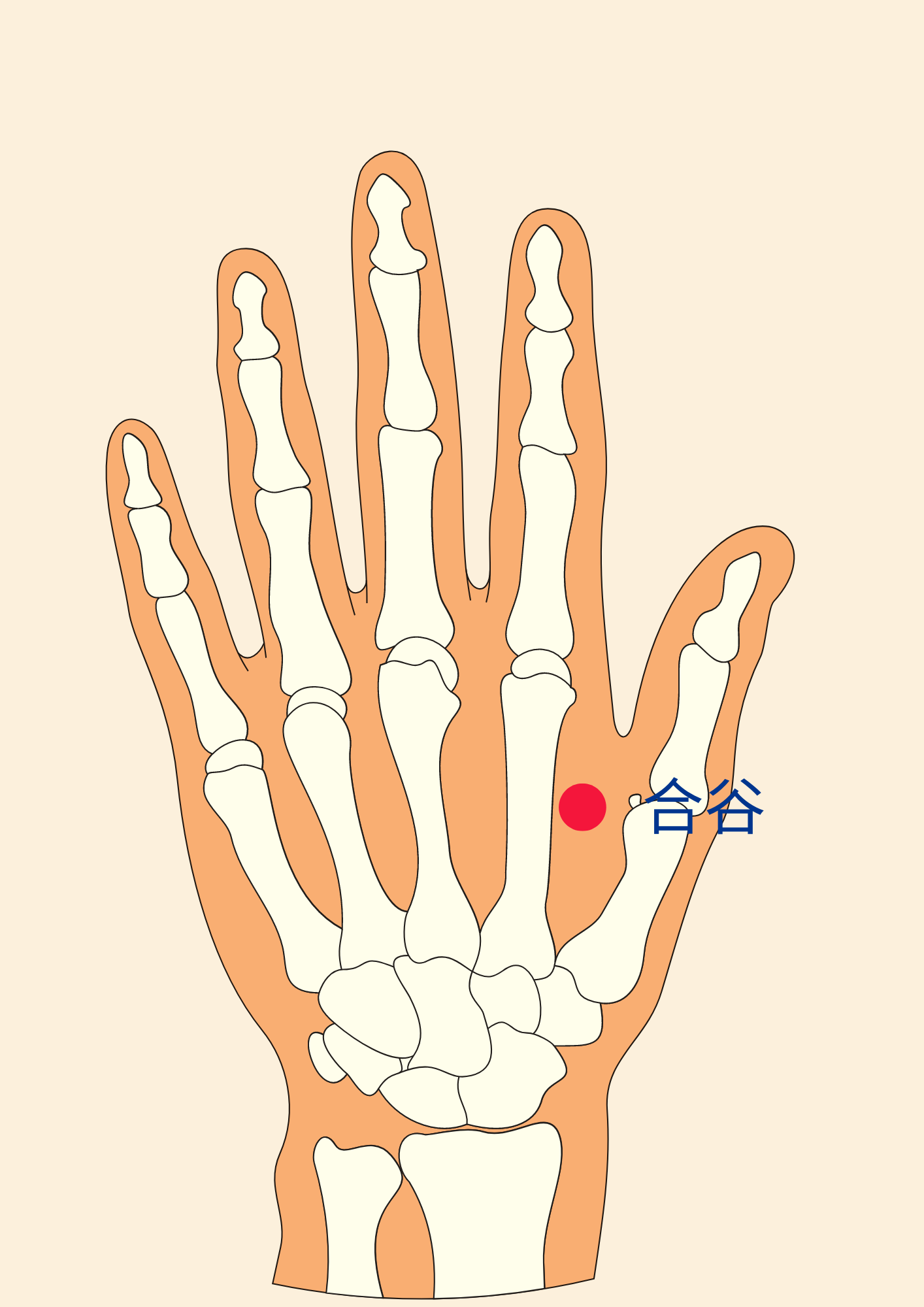
He Gu(合谷, Large Intestine 4):
This acupoint is located on the hand, in the webbing between the thumb and index finger.
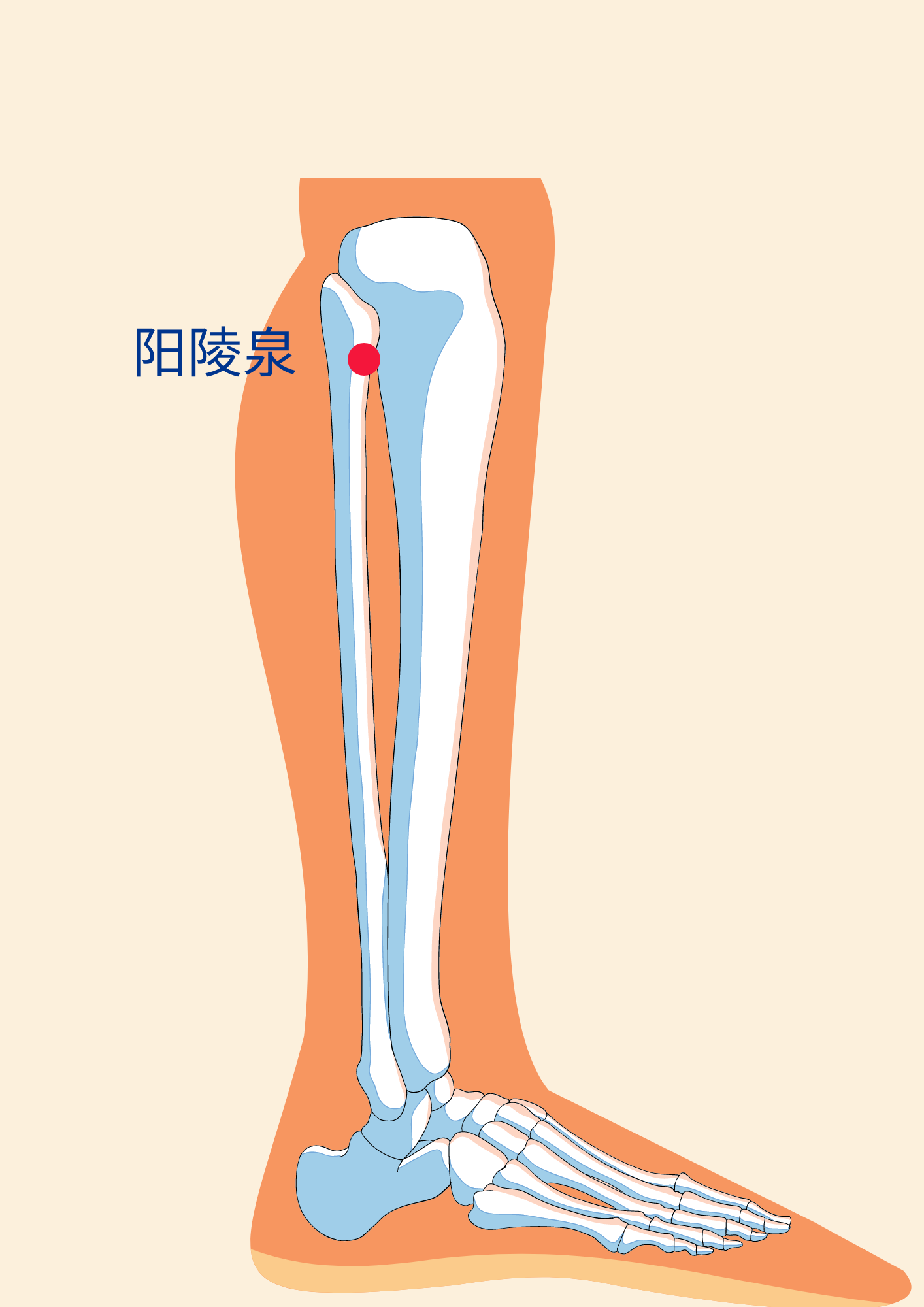
Yang Ling Quan (阳陵泉, Gallbladder 34):
This acupoint is located on the lateral side of the lower leg, just below the knee. This is extremely helpful for treating knee pain and stiffness.
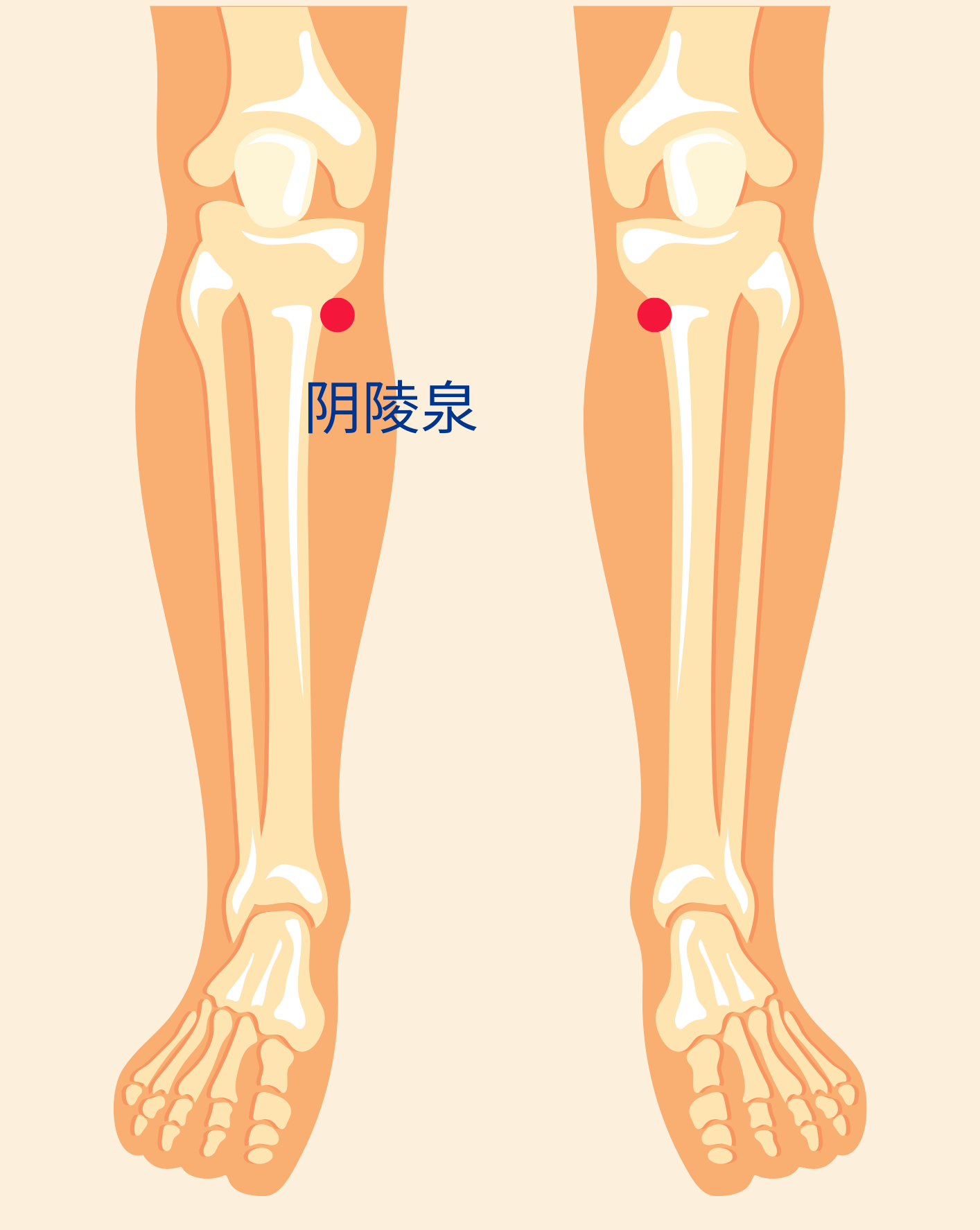
Yin Ling Quan (阴陵泉, Spleen 9):
This acupoint is located on the medial side of the lower leg, approximately 4 cm above the medial malleolus. It is commonly used for treating knee pain and swelling, including osteoarthritis of the knee.
For treating stiffness in joints:

Zu San Li (足三里, Stomach 36):
This acupoint is located on the lower leg, approximately 3 inches below the knee. Besides treating knee pain and stiffness, this acupoint helps with general weakness and fatigue too.
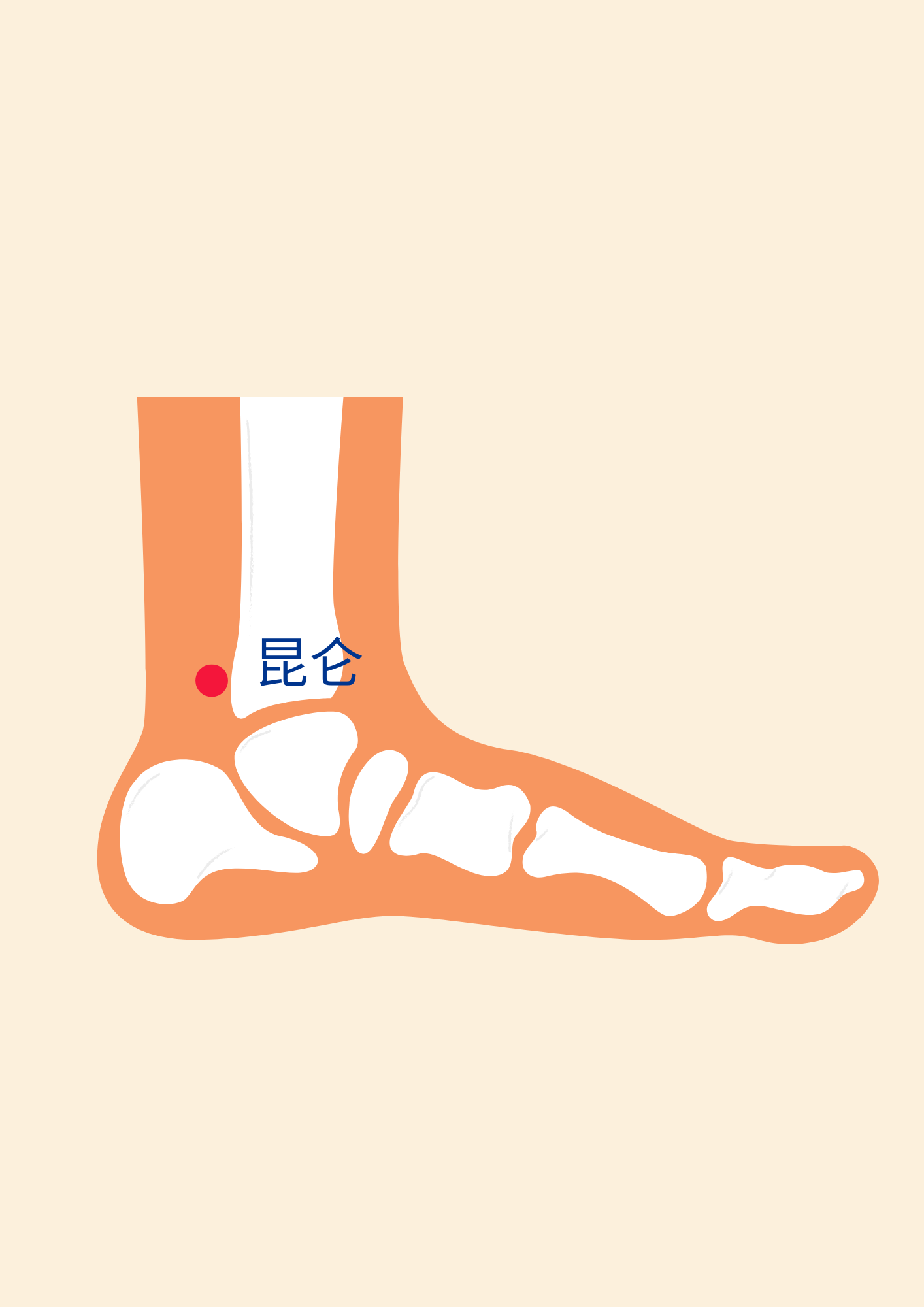
Kun Lun(昆仑, Bladder 60):
This acupoint is located on the ankle, in the depression between the outer ankle bone and the Achilles tendon.
4. Exercise
If you’re overweight, shedding some weight helps to relieve pressure on your joints, making the recovery process easier. You can try other gentle exercises to keep your knee moving to avoid stiffness, as well as strengthen the joints. Some low-impact activities you can consider are cycling, walking, yoga, as well as stretching exercises to improve the flexibility in your joints.
In TCM, we emphasise the mind-to-body connection. Meditative exercises like tai chi and qi gong incorporates both physical and emotional therapy that can help to increase your range of motion whilst promoting relaxation, which eliminates the Qi deficiency caused by emotional injury.
5. Diet
Try to incorporate a diet rich in whole foods, fruits, and vegetables to boost your Vitamin K levels, which has anti-inflammation properties as well as strengthen the joints to promote recovery. You can also consider a Mediterranean diet, which consists of fish and nuts that provides ample omega-3 fatty acids that helps relieve joint pain and stiffness. For some people, going gluten-free have been evidenced to help with the pain.
Avoid cold and damp food that promotes inflammation such as oil/sugary food, alcohol, salads, etc. It is also a good way to maintain your weight to avoid excessive pressure on your joints.
What are some TCM services to consider?
One of the most effective and natural treatments for knee arthritis is acupuncture. Acupuncture is a common treatment for knee arthritis that involves the insertion of fine needles into specific acupuncture points on the body to stimulate Qi and blood circulation, reduce inflammation, and alleviate pain. Studies have shown that acupuncture can be an effective treatment for knee arthritis, with some patients experiencing significant improvements in pain and function.
If your condition is mild, the above home remedies should be enough to tide over the pain and have a swift recovery. However, for more severe conditions, you should seek your doctor for assistance.
Conclusion
The symptoms of knee pain or arthritis can be managed with natural home remedies, especially in its earlier stages. The TCM approach offers holistic, effective, and natural treatments like acupressure and herbs that address the underlying causes of your condition. Coupled with lifestyle modifications, you get an effective formula to alleviate pain and inflammation, improve joint function, and promote overall health and well-being.
Get the Appropriate Paincare
At Singapore Paincare TCM Wellness, we integrate a unique east-west approach to maximise the effects of our treatments. Our physicians and therapists undergo multiple training at Singapore Paincare Academy (administered by Singapore Paincare Medical Group) to gain a better understanding of clinical conditions so that together with their TCM expertise, they can help patients recover.











